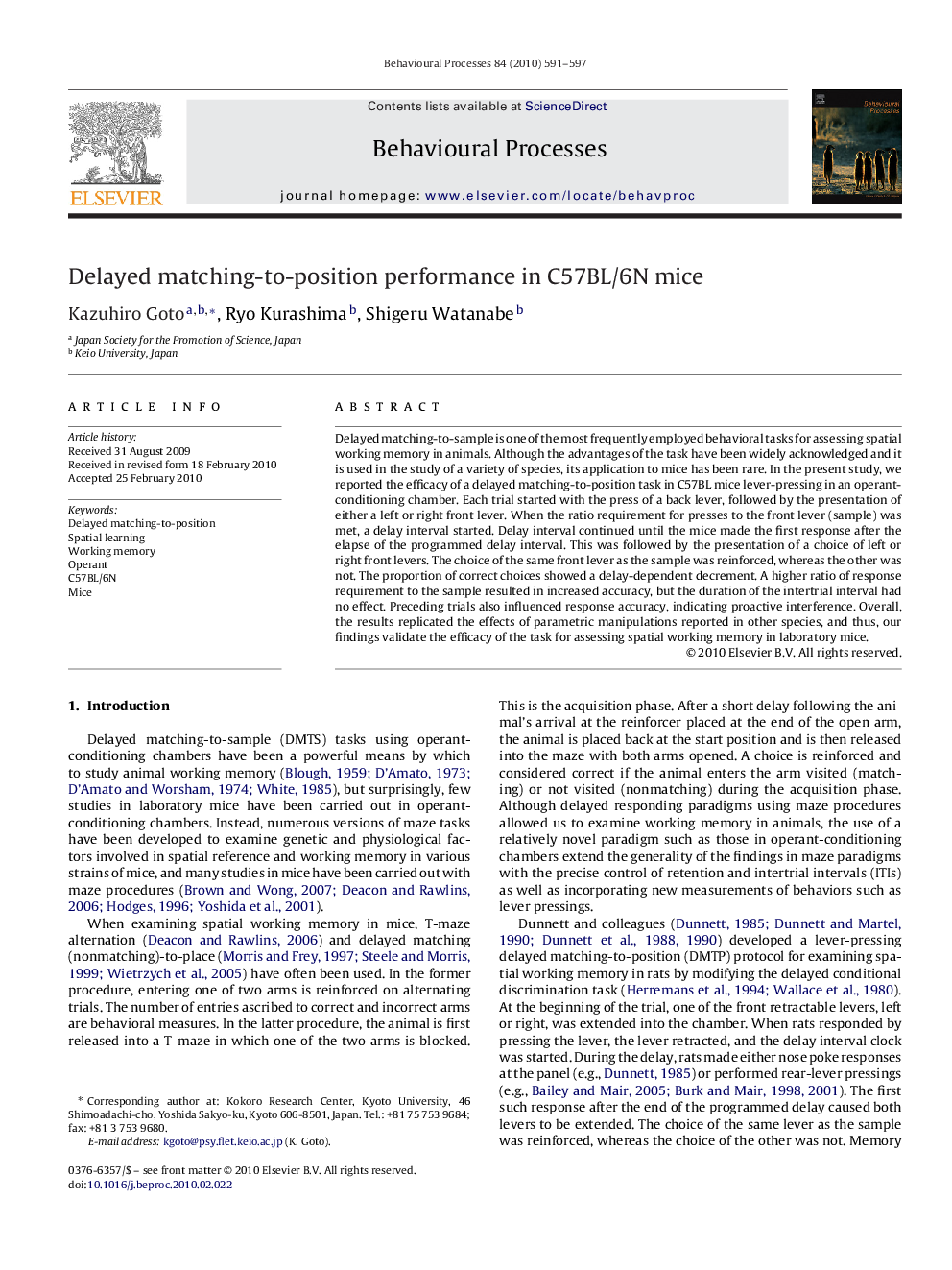| Article ID | Journal | Published Year | Pages | File Type |
|---|---|---|---|---|
| 2427506 | Behavioural Processes | 2010 | 7 Pages |
Delayed matching-to-sample is one of the most frequently employed behavioral tasks for assessing spatial working memory in animals. Although the advantages of the task have been widely acknowledged and it is used in the study of a variety of species, its application to mice has been rare. In the present study, we reported the efficacy of a delayed matching-to-position task in C57BL mice lever-pressing in an operant-conditioning chamber. Each trial started with the press of a back lever, followed by the presentation of either a left or right front lever. When the ratio requirement for presses to the front lever (sample) was met, a delay interval started. Delay interval continued until the mice made the first response after the elapse of the programmed delay interval. This was followed by the presentation of a choice of left or right front levers. The choice of the same front lever as the sample was reinforced, whereas the other was not. The proportion of correct choices showed a delay-dependent decrement. A higher ratio of response requirement to the sample resulted in increased accuracy, but the duration of the intertrial interval had no effect. Preceding trials also influenced response accuracy, indicating proactive interference. Overall, the results replicated the effects of parametric manipulations reported in other species, and thus, our findings validate the efficacy of the task for assessing spatial working memory in laboratory mice.
